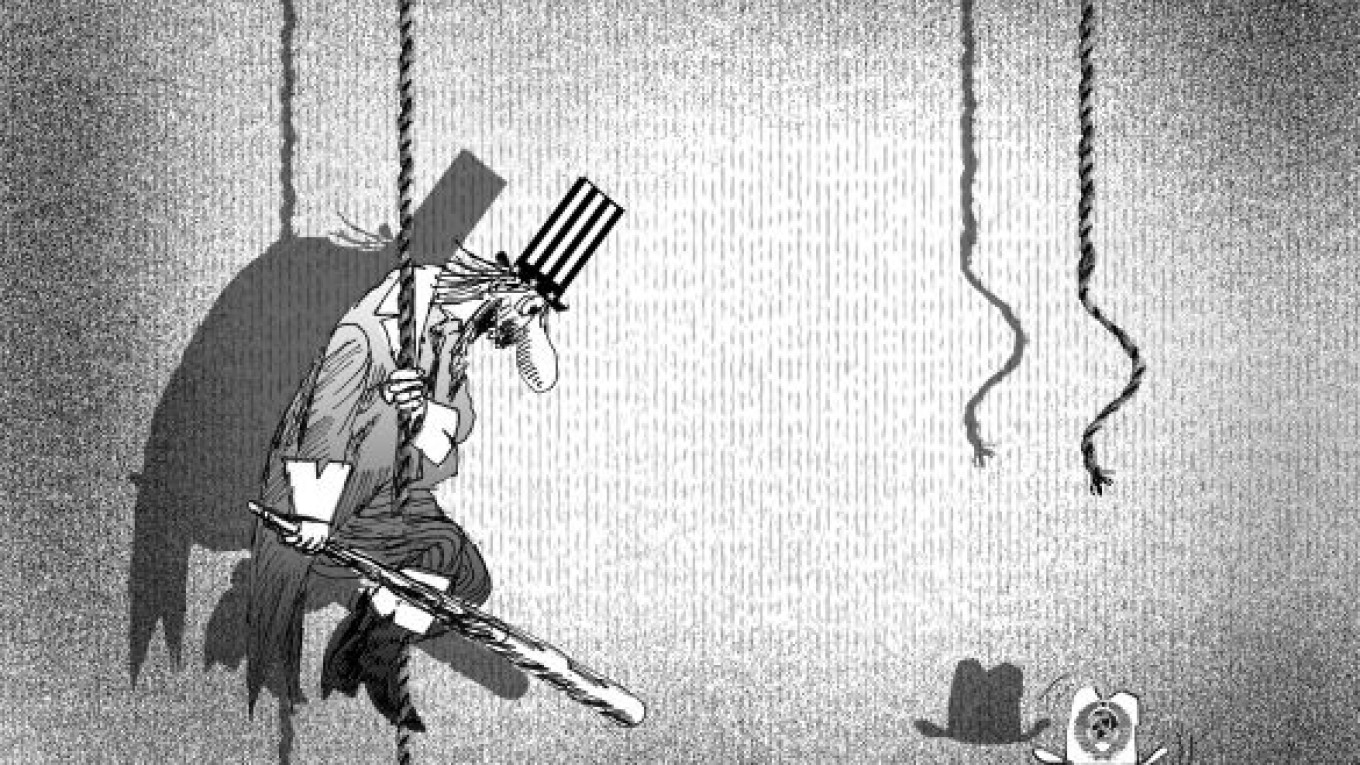Few people around the world foresaw the collapse of the Soviet Union or the demise of communism. But back in 1981, Robert Tucker, a prominent neocon and an old-school U.S. isolationist, surprised our graduate seminar at an international affairs school by suggesting not only that the Soviet empire might be on its last legs, but that if and when it crumbled it would not be such a great thing for the United States.
Having just emigrated from the Soviet Union, I was convinced that communism would endure forever and that the old men ruling the Kremlin were winning the Cold War. But if the Soviet Union were to disappear, I didn’t think there would be much to regret.
Tucker had a different view. “The superpowers balance one another out and each keeps the other side connected to reality,” he explained. “Think of the follies they would commit if all that power were left unchecked.”
These days, I get a sense of unreality whenever I travel around the United States. There has been an extraordinary expansion of the security establishment in the country. On each leg of a recent trip from New York to St. Louis, a federal marshal unobtrusively took up two front-row seats on a sold-out flight. Armed federal marshals on domestic flights were yet another layer of protection provided to us, after security had made us stand in line for an hour to make sure we had no shampoo bottles or nail clippers in our carry-on bags.
U.S. airports are now full of soldiers in uniform, resembling dust-covered construction workers in their desert camouflage and work boots, traveling home from foreign wars. Troops fighting overseas are yet another layer of protection for Americans, since they are “fighting terrorists over there so that we won’t have to fight them over here,” to use a ridiculous political cliche.
All this effort — and much else that remains concealed — to keep 100 passengers on a regional flight safe. In the old days, the Soviet Union never got as much attention from the U.S. government as a rag-tag gang of international terrorists, even though the Soviets had a global network of agents, client states and a vast nuclear arsenal that could annihilate the United States in 15 minutes.
Paranoia can be a national sickness. The U.S. government has successfully scared its people, and the people have sheepishly let their freedoms be restricted.
A recent Gallup poll measuring confidence in various institutions found that U.S. Congress now stands lower in the nation’s esteem than any other institution ever. While only 11 percent trust Congress, fully 82 percent have confidence in the military. By contrast, a recent Levada Center poll found that 57 percent of Russians wouldn’t want their relatives to serve, an interesting statistic since Russia’s Defender of the Fatherland Day on Feb. 23 has turned into a watered-down, all-encompassing Men’s Day.
A similar disconnect exists in attitudes toward the police. Last year, another Levada Center poll found that only 29 percent of Russians trusted the police. More recently, that number has fallen to just 1 percent. Russian policemen are notoriously corrupt and abusive, and a horrendous increase in police crimes against citizens has dampened public opinion further. In the United States, on the other hand, the already huge proportion of those who trust their police rose by 5 percentage points over the past two years, to 59 percent. It is not a healthy sign, either, and it surely conflicts with the United States’ self-image as a nation of rugged individualists.
The Soviet Union used to overspend massively on the military and the police. The United States is now squandering its resources on similar things, ignoring real economic and political challenges that it faces. But with Russia out of the running and China still too poor to be a genuine rival, there is no one to keep official Washington sane. Its politicians seem to believe that they have a huge margin for error.
An ideological gap separates neocon Tucker and Prime Minister Vladimir Putin. But if the United States goes bankrupt chasing al-Qaida, Tucker may end up agreeing with Putin, who said the collapse of the Soviet Union was the greatest tragedy of the 20th century.
Alexei Bayer, a native Muscovite, is a New York-based economist.
A Message from The Moscow Times:
Dear readers,
We are facing unprecedented challenges. Russia's Prosecutor General's Office has designated The Moscow Times as an "undesirable" organization, criminalizing our work and putting our staff at risk of prosecution. This follows our earlier unjust labeling as a "foreign agent."
These actions are direct attempts to silence independent journalism in Russia. The authorities claim our work "discredits the decisions of the Russian leadership." We see things differently: we strive to provide accurate, unbiased reporting on Russia.
We, the journalists of The Moscow Times, refuse to be silenced. But to continue our work, we need your help.
Your support, no matter how small, makes a world of difference. If you can, please support us monthly starting from just $2. It's quick to set up, and every contribution makes a significant impact.
By supporting The Moscow Times, you're defending open, independent journalism in the face of repression. Thank you for standing with us.
Remind me later.


